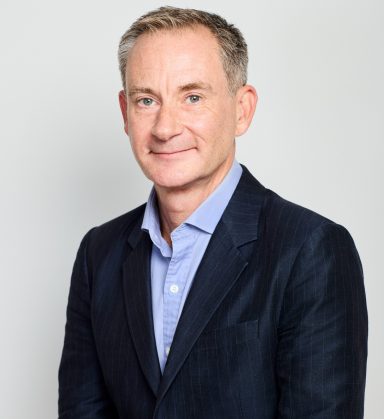Other training courses
Other specialist psychotherapy training
I also offer other specialist training courses for psychotherapists, including the ones featured below:
Please contact me for further information about any of these courses.

Voice and psychotherapy
Using our voice in psychotherapy
Vernon Thompson is a voice coach with over twenty years’ experience This one day workshop will support you with the technical knowledge and muscular training to develop the voice you want and encourage clients to best express themselves and their feelings and thoughts through optimal vocal expression.
Early in his career he had his own struggles with voice, as a working actor battling a stammer which amplified his empathy and attunement to work and support others.
He has worked with thousands of performers, academics, researchers and poets as well as people overcoming injury and illness.
He offers private consultations and is Head of Voice, Speech and Communication at City Lit, the UK’s foremost adult education college. He is the Voice Consultant for Channel 4 News and TNT (Istanbul) and current clients include BBC and Sky newsreader and broadcasters and a patient recovering from mouth cancer.
- More info at: www.vernonthompson.co.uk
What is covered on the course Voice and Psychotherapy?
Core concepts include:
- Empathic transactions and the different types of empathic transactions that can be conveyed through our voice
- Different types of breathwork to centre and ground clients in high emotion
- Bodywork exercises
- Somatic experience of the body and voice
- Communicating without 'charge' in relationships and couples therapy
- Psychoeducation for clients around using their voice for potency and gravitas
- Decontamination and deconfusion work when using voice
Topics covered include:
- Assessing clients through their voice, including intonation, timbre, pitch and pace.
- Communicating and conveying feelings optimally
- Clarity to heighten understanding of content in a psychotherapy session
- Use of pausing, pace and delivery to increase power of transactions in psychotherapy
- Working with couples and relationships to communicate better through careful use of voice
- Addressing individual concerns of psychotherapists to see how they can use their voice better
- Supporting clients with weakened voice as a result of illness, physical issues and psychological vulnerability
Date:
- September 14th 2025
Cost:
- £150 for the day
Venue:
- 42 Driffield Road E3 5NF (or a larger East London venue if numbers require).
“Many thanks for sharing not just your wisdom and expertise but also your beautiful home over the last few months. It has been a wonderful experience.”
Hannah Jackson-McCamley, 3rd year psychotherapy student, Metanoia Institute

Please email to register your interest: jonathanchristopherlake@yahoo.com
Certificated course including 14 hours of CPD and two hours of MHFP
Food and psychotherapy
A weekend looking at our relationships with food.
Jonathan trained at Le Cordon Bleu Paris for the 'grand diplôme', cookery school in the late 2000s and spent ten years reviewing restaurants and running a canapé business whilst working as a psychotherapist. He is in training at Wine and Spirits Education Trust (WSET) and is working up to Sommelier training.
He is interested in poor eating and unaware habits therapists can have and is passionate about supporting clients through their complex relationship with food and vitality.
Dates:
- Date: please email to register interest
Cost:
- £225 for the weekend
Venue:
- 42 Driffield Road E3 5NF (or a larger East London venue if numbers require).
What is covered on the course Food and Psychotherapy?
Core concepts include:
- Jung's idea of different bodily needs.
Berne's different types of hunger. - Developing through autonomy, individuation and self-actualisation with food as the fuel.
- Transgenerational trauma and legacies around food and eating.
- Psychological as well as physical scarcity and abundance in our individual stories and how this may impact our hungers.
Topics covered include:
- working psychodynamically with eating disorders
- resources to support those around eating disorders
- exploring meaning of food; as nourishment, symbol of love, nurturance and enjoyment
- food as addiction, an addiction like no other where you have to imbibe at least three times a day to be healthy
- how we were fed from birth and how our complex intersectionality can impact our perception of food
- when does eating become a disorder clinically and how is this treated by different modalities
- how our appetite for life and living with intensity may influence our relationship with eating
- our larger relationship with health, vibrancy and pleasure
- ego versus soulful eating
“Thank you for your brilliant, witty and insightful teaching. You are a true educator.”
River, third year psychotherapy student Connexus Institute

Working with Neurodiversity
A weekend training to help understand, support and work with neurodiversity
- Date: tbc, please email to register interest
- Venue: 42 Driffield Road, E3 5NF
- Cost: £250 for the weekend
- Certificated course including 14 hours of CPD and four hour of MHFP
With more and more people being diagnosed or self-diagnosing with differences/disorders in adulthood than ever before, how does it impact our work as therapists? How do we consider a client possibly having these diagnoses if we do not know what to look out for, and what could be the impact if we miss this or misdiagnose?
Maybe it’s daunting to think about working with these clients. Where does one begin to understand all the different opinions on this subject?
What is covered on the course Working with Neurodiversity?
This course is taught by Jonathan Lake and Crena Watson.
Crena Watson is dyslexic and has ADHD; she runs a full private practice for autistic and ADHD individuals.
Topics covered include:
- What are our perceived ideas and assumptions and prejudices? It can be scary to ask questions in case one says the wrong thing.
- What is the difference when working with an autistic or non-autistic client? How do we work with them optimally?
- What happens when we have a client diagnosed with ADHD, but they also have undiagnosed Autism and vice versa, as around 70% have both?
- We aim to share our involvements in working with such clients, bringing it alive with case studies, and our own learnings and mistakes.
- We will discuss what Autism and ADHD actually is, helping dispel many incorrect stigmatising misconceptions.
- We will examine the challenges these neurodivergent individuals have in a society which is mostly neurotypical.
- The so called level one/ high functioning autistic person who appears to be coping in society, are one of the biggest cohort of people to die by suicide.
- We will look at the many co-morbidities that can accompany these diagnoses.
- May be you are neurodivergent yourself and if so we welcome your input.
- We will provide a reading list of books and Journals, many written by autistic academics.
- Research findings in this area will be key to our conversations
Psychotherapy and counselling training in East London - Driffield Road E3 5NF
©Copyright 2025 Jonathan Lake. All rights reserved.
We need your consent to load the translations
We use a third-party service to translate the website content that may collect data about your activity. Please review the details in the privacy policy and accept the service to view the translations.


